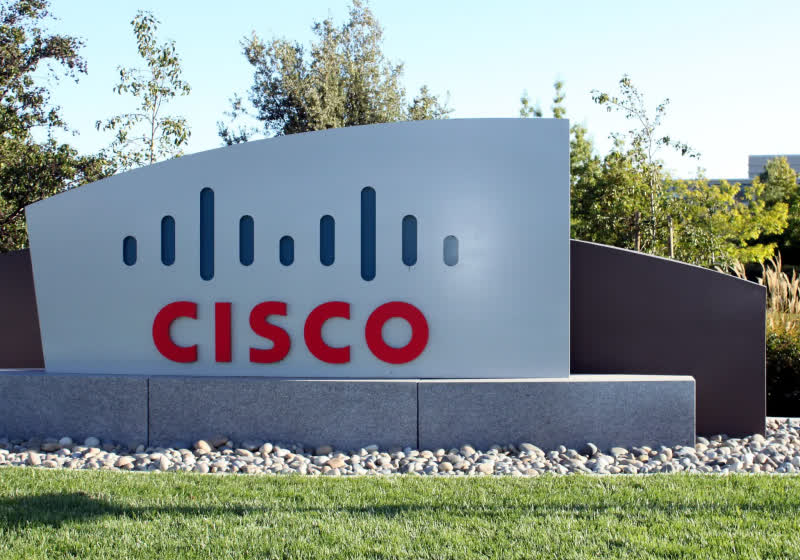xAI faces calls to deny permits to power gas turbines at supercomputer facility.
Thermal imaging of xAI's Memphis facility prompted allegations that more than 30 of xAI’s methane gas turbines are operating without environmental permitting. Credit: ©Steve Jones, Flight by Southwings for SELC
Elon Musk raced to build Colossus, the world's largest supercomputer, in Memphis, Tennessee. He bragged that construction only took 122 days and expected that his biggest AI rivals would struggle to catch up.
To leap ahead, his firm xAI "removed whatever was unnecessary" to complete the build, questioning "everything" that might delay operations and taking the timeline "into our own hands," xAI's website said.
Now, xAI is facing calls to shut down gas turbines that power the supercomputer, as Memphis residents in historically Black communities—which have long suffered from industrial pollution causing poor air quality and decreasing life expectancy—allege that xAI has been secretly running more turbines than the local government knows, without permits.
Alleging that the unregulated turbines "likely make xAI the largest emitter of smog-forming" pollution, they've joined the Southern Environmental Law Center (SELC) in urging the Shelby County Health Department to deny all of xAI's air permit applications due to "the stunning lack of information and transparency."
One resident, KeShaun Pearson, president of the local nonprofit Memphis Community Against Pollution, accused xAI of "perpetuating environmental racism" on the news show Democracy Now. He's contended that xAI considers Memphis residents "not even valuable enough to have a conversation with," Time reported.
Perhaps even more disturbing to Memphis residents than the alleged lack of transparency was the mysterious appearance of fliers distributed by an anonymous group called “Facts Over Fiction," The Guardian reported. Papering Black neighborhoods, the fliers apparently downplayed xAI's pollution, claiming that "xAI has low emissions."
The SELC told Ars that the fliers came just as the legal group obtained thermal imaging that appears to catch xAI in a potential lie. After earlier images revealed that xAI has at least 35 turbines on site—despite its pending application only seeking permits for 15—Memphis mayor Paul Young claimed that xAI had said it was only using 15.
Investigating, the SELC teamed up with SouthWings to capture aerial thermal imaging. And that showed "33 turbines giving off significant amounts of heat, meaning they were currently running at the time of the photo," SELC said.
"The new images clearly show that more than 30 of xAI’s methane gas turbines are operating, debunking recent claims that the company was merely storing—and not running—more than half of the turbines outside of its data center," the SELC alleged.
SELC Senior Attorney Amanda Garcia has suggested that these images back up residents' fears that xAI may be relying on non-disclosure agreements with the local government to run its facilities however it wants. Her group noted that Tennessee officials and residents should be aware that "Musk’s SpaceX and Boring Company have been fined thousands of dollars for violating environmental regulations in Texas."
“It is appalling that xAI would operate more than 30 methane gas turbines without any permits or any public oversight," Garcia said. "Without appropriate controls, gas turbines can release harmful pollution that is tied to asthma, respiratory illnesses, and certain types of cancers. xAI’s failure to disclose that it’s running dozens of these polluting turbines at its South Memphis data center has left Memphians in the dark about what is being pumped into the air they breathe every day."
Although xAI reportedly ignored calls to engage Memphis residents living near the data center charging Colossus, the SELC said, the health department did not. On Friday evening, the department's Pollution Control Branch scheduled a public hearing where residents can finally weigh in on the draft permit that xAI submitted earlier this year. They can also submit comments online.
xAI did not respond to Ars' request to comment.
xAI plans unbridled growth amid backlash
To secure permits that would allow xAI to operate 15 turbines—fueling 22 startups and shutdowns each annually—xAI is required to install the best available emissions control technology, the draft permit notes. Any failures to keep emissions low—even if "caused by poor maintenance, careless operation, or any other preventable upset condition or preventable equipment breakdown"—puts xAI at risk of enforcement actions from the health department and the EPA.
xAI's submission claimed that each of the 15 turbines "is equipped with Solar’s Dry Low Emission (DLE)/SoLoNOx control technology" and other systems to reduce emissions of nitrogen oxides, carbon monoxide, and volatile organic compounds. For those reasons, xAI expects to be granted permits, the submission suggests.
However, even before xAI's construction began, Shelby County was already in violation of the eight-hour ozone standard that protects public health, which means that xAI may need to implement additional controls.
The health department's hearing will be the first time the public will have a chance to push for better accountability. Seemingly hoping to quell the backlash, the strange fliers seem like an attempt to push back by sowing discord.
“Those 15 xAI turbines?” the fliers distributed to thousands of Memphis residents said. “They’re specially designed to protect the air we all breathe.”
Nothing directly links xAI to the fliers. But xAI will have to play defense, as it has no plans to slow down its data center expansion, with its leading supercomputer facing immense competition to dominate the AI industry. Musk swore the rapid construction and subsequent work to double the size were "just the beginning," while the xAI website boasts that "no one has come close to building at this magnitude and speed."
The company has already invested $7 billion into the data center, and those costs will only grow. To keep pace, xAI has already earmarked recent funding to "further accelerate our advanced infrastructure," a December blog noted. Further, researchers expect that "within six years, building the leading AI data center may cost $200 billion," TechCrunch reported Friday, so those costs will likely keep growing, while likely deepening Musk's entrenchment in Memphis and any feared pollution from that into the foreseeable future.
Additionally, products dependent on the data center will keep Musk's facility humming in Memphis. The primary use of xAI's supercomputer today is to fuel Grok, the chatbot running on posts from Musk's social network X. In February, xAI unveiled a preview of its most advanced version of Grok yet, and other "groundbreaking" products are in the pipeline, X's blog said.
xAI accused of lying to win AI race
While xAI pushes forward, Justin Pearson, a Tennessee state representative and brother to KeShaun, is hoping to rally support to shut xAI's alleged pollution down and potentially mess with Musk's breakneck-speed AI ambitions.
On Instagram, he accused xAI of "lying to us about xAI’s methane gas pollution" when "we know methane gas leads to more asthma attacks" and "more respiratory illness."
He's also called on local officials to unmask the anonymous group behind the fliers "to combat the lies and misinformation."
As xAI must now confront pollution accusations in Memphis, the company continues positioning its supercomputer as a world-changing technology, winning approvals for its Memphis facility by promising to be a boon to the local economy. Soon it will move past chatbots, as xAI intends to focus on autonomous vehicles, robotics, and scientific simulation, a business publication called Data Center Frontier reported. Currently, xAI "is exploring using AI in science to find new materials, save energy, and even help to find new drugs," that report noted.
But although xAI's Colossus website asks, "What’s one seemingly impossible question you’d answer for humanity," climate change solutions do not seem to register as highly among xAI's burning questions. As Colossus chugs along at what TechCrunch reported is an estimated 300 megawatts of power (as much as 250,000 households)—and sustainable alternatives lack resources to sustain AI data center needs—the Pearson brothers remain aghast that powering the future of AI seems inextricably linked to burning more fossil fuels.
"It's frustrating because it could be better," KeShaun told Time. "The dissonance of having essentially the future of technology powered by fossil fuels is, you know, it just leaves me speechless."










 English (US) ·
English (US) ·